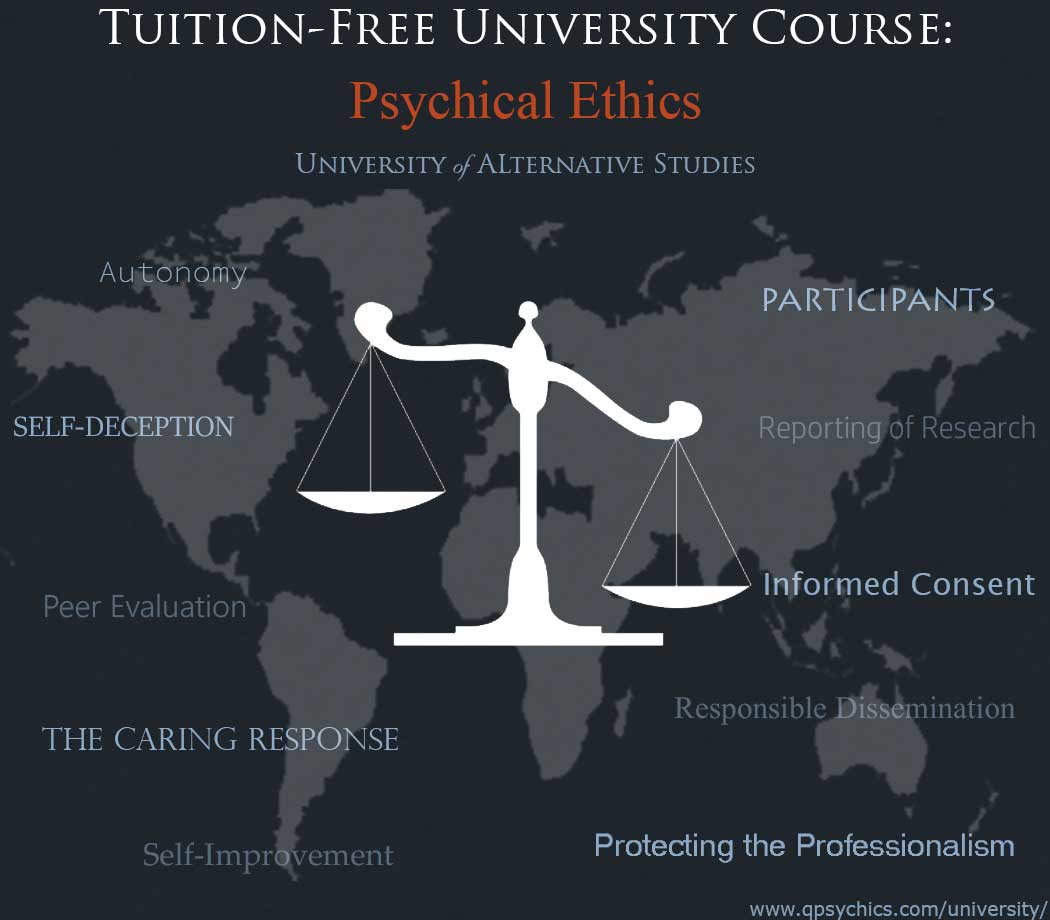This course addresses psychical morality and ethics and the reason they matter. Includes a psychical oath, addresses the difference between morals and ethics, defines the caring response, addresses autonomy, duties, and the six-step ethical processes (i.e. gather relevant information, identify the type of ethical problem, use ethics theories or approaches to analyze the problem, explore the practical alternatives, complete the action, and evaluate the process and outcome). Topics also include maintaining personal integrity, addresses self-deception, the responsibility to improve the self, living with the business aspects, practice (peer) evaluation, unethical or incompetent practice, confidentiality, and informed consent. Topics also include ethical issues and end-of-life care such as; assisted suicide and euthanasia, includes ethical expressions and manifestations, and lastly, the consequences of unethical conduct as a professional. This course also addresses the ethical and professional standards for parapsychologists including topics on the protection of participants, funded research, responsibilities and rights of scientific collaborators, responsibilities related to scientific publication, responsibilities and obligations towards colleagues, responsible dissemination of information to the public, and protecting professionalism in the field.
Course Admission Requirements: Anyone may enroll in an Introductory Course regardless of age, location, and prior education. For more information, please see Recommended Prerequisites and Academic & Career Expectations.
 Enroll in Psychical Ethics!
Enroll in Psychical Ethics!
Open Access. No Application Required.
All Study Materials Included (e.g. Text, Assignments, Exams).
UAS Certificate of Course Completion.
Total Hours: 4hrs. | Weeks: 4.5
Student Interaction Available.
Course Enrollment Period: 90 days
Course Fees: $25 Certificate Fee (optional)
Course Developer: Theresa M. Kelly
:: Curriculum
Psychical Ethics – Morality and Ethics: What They Are and Why They MatterView Content
:: Study Material References
ADDITIONAL RESOURCES:View ContentBeauchamp, T., Childress, J.F. (2001). Principles of Biomedical Ethics 5th Edition. New York. Oxford University Press.
Garner, B. (1999). Black’s Law Dictionary. 7th Edition. West Publishing Company.
Hunt, S. (2003). Alternative Religions: A Sociological Introduction. Aldershot, Hampshire, England.
Irwin, H., Watt, C. (2007). An Introduction to Parapsychology. McFarland & Company Inc.
Jonsen, A., Seigler, M., Winslade, W. (2002). Clinical Ethics: A Practical Approach to Ethical Decisions in Clinical Medicine.5th Edition. New Y York. McGraw Hill.
Martin, M.W. (1986). Self Deception and Morality. Lawrence, KS. University Press of Kansas.
Mendoza, P. (2004). The Significance of Martial Ethics in Bioethics: An Alternative Ethical Theory. The Klin Journal of Medical Ethics, Law, and History.
Purtilo, R. (2005). Ethical Dimensions in the Health Professions. 4th edition. Saunders.
Purtilo, R., Haddad, A. (2002). Prefessional Boundaries Guide by Respect. Health Professional and Paitent Interaction 6th Edition. Philidalphia: WB Saunders. Purtilo, ZR. (1994). Interdisciplinary Health care Teams and health Care Reform. Journal of Law Medicine and Ethics.
Purtilo, R. (1994). Interdisciplinary Health care Teams and health Care Reform. Journal of Law Medicine and Ethics.
Parapsychological Association (2005). Ethical and Professional Standards for Parapsychologists: Aspirational Guidelines. (www.parapsych.org)
Course Fees: $25 Certificate Fee (optional)


 Enro
Enro